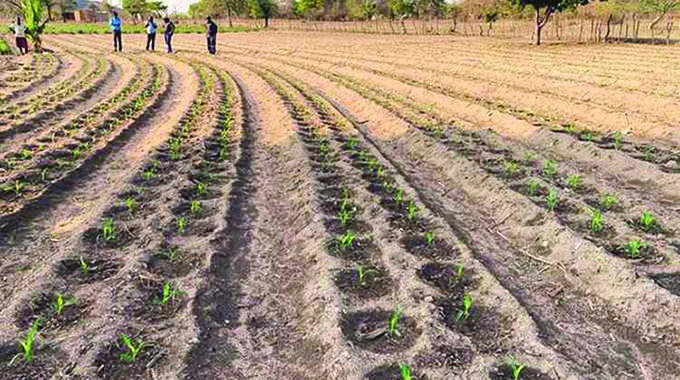Government revives master farmer training programme

Leonard Ncube, Victoria Falls Reporter
GOVERNMENT has revived the master farmer training programme which seeks to capacitate small-scale rural farmers with basic agricultural knowledge and skills that will help them transform them from subsistence to commercial farming.
This comes as Government has also started distributing threshing machines to rural farmers, especially in areas characterised by low-rainfall patterns where small grain farming is encouraged.
A thresher is a piece of farm equipment that threshes grain by removing the seeds from the stalks and husks and makes it easier to handle grain produce.
Most farmers shun growing millet and sorghum because of fear of harvesting and sorting seeds from the stalk which causes body itchiness.

Food and Agriculture Organisation (FAO)
About 50 pioneer master farmers graduated with certificates at an event held in Jambezi under Chief Shana outside Victoria Falls in Hwange district last Friday where some threshers were also handed over to groups of farmers.
Some threshers were also given to farmers in Tsholotsho and Lupane also in Matabeleland North as Government intensifies efforts to encourage farmers in low rainfall agro-ecological regions to grow drought resistant and short-season crops.
Threshers will help is in sorting sorghum, millet and maize and can thresh a tonne per hour.
The machines were made locally with help from Food and Agriculture Organisation (FAO) and World Food Programme WFP).
The master farmer training programme started before independence and those trained were given preference for productive farming areas. Soon after independence they were the first to benefit from the land redistribution programme in resettlement areas.
The programme is being revived after becoming inactive over the years. Farmers are taught the basics of farming which include crop rotation, soil conservation, animal production, and climate change for two years before graduating with certificates.
The Agricultural Rural Development and Advisory Services is tasked with mobilising and recruiting trainees including elderly villagers in line with the Second Republic’s vision of transforming the country into an upper middle-income economy by 2030.
Through rural industrialisation, the Government hopes to stem rural-to-urban migration, which saps growth from the African countryside, transferring it to towns and cities.
Rural industrialisation, which hinges on the Second Republic’s devolution policy, involves nurturing agro-processing start-up enterprises in rural areas through financial and technological support via venture capital funding and Government agencies.
Speaking during the graduation ceremony, Chief Director for Agricultural and Rural Development Advisory Services in the Ministry of Lands, Agriculture, Fisheries, Water and Rural Development, Professor Obert Jiri challenged farmers to take farming as a serious business venture.
He said the programme is part of the Agriculture 8.0 initiative which also includes the climate-proofed Presidential Inputs Scheme, popularly known as Intwasa/Pfumvudza.

Pfumvudza/Intwasa
Intwasa is a concept aimed at climate-proofing agriculture by adopting conservation farming techniques and involves use of small plots and applying the correct agronomic practices for higher returns.
“Government saw it fit through the Department of Mechanisation to give threshers to make life easy for farmers so that they are able to realise the value of farming. This is why we came here today.
These are the first threshers here and we want many of these to come,” said Prof Jiri. “The threshers are being given to a number of districts most of which are in Matabeleland North.
We have people that have done very well including the elderly who decided to go back to school in their fields and become better farmers.”
Prof Jiri said Government had come up with a number of policies and programmes aimed at enhancing agriculture and improving food security. – @ncubeleon










Comments